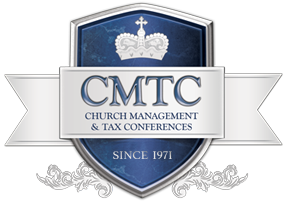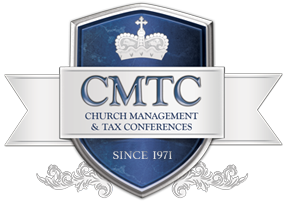Just Because the Donation Was to the Church Doesn’t Qualify it as Tax Deductible – Part I
As we enter the Christmas season, many become benevolent in their nature—giving to different charities, including Churches. We must be cognizant to properly classify gifts donated to the Church or to those within it.
Not all, but many who make charitable contributions do so with intentions of claiming them as deductions on their tax returns. For any donation to be accepted as a tax-deduction, the Church is tasked with a responsibility to ensure those contributions are proper and that the Church could receive the donations as tax-exempt.
The Internal Revenue Service lists qualifying organizations in Publication 78, but unfortunately not all Churches are listed within its pages. Some feel that a Church is automatically exempt simply because it is a Church. Although section 170 of the Internal Revenue Code states that donations to Churches are tax-deductible and therefore many Churches do not file for their own 501(c)(3) because of one statement in section 508(c)(1)(a). This section does state that Churches do not have to APPLY for 501(c)(3) status. However, according to the Taylor vs. The Commissioner case, the Court ruled that section 508(c)(1)(a) only relieves Churches from applying for a favorable determination letter regarding their exempt status, but it does not relieve a Church from having to meet the requirements of section 501(c)(3).
Although it relieves the Church from applying for the favorable determination letter, that Letter of Determination is the “Proof Document” that allows all donations to the Church to be tax deductible. Remember, the allowance of a tax deduction for any gift is solely at the discretion of the IRS (Jack Taylor vs The Commissioner). Jack Taylor’s Church did not have a Determination Letter and the Judge ruled that neither Mr. Taylor, nor the Church proved his organization was a Church (even though they were conducting regular worship services). None of Mr. Taylor’s donations (several thousands of dollars) were allowed and resulted in him paying more taxes, and penalties and interest.
Another case of interest is the District of Columbia Appeals Court Ruling in the case of Branch Ministries and Pastor David Little vs The Commissioner, the District of Columbia Court of Appeals ruled against Branch Ministries.
The IRS revoked the (501)(c)(3) status of Branch Ministries (a Church) which resulted in an unsuccessful suit against the IRS. The Church also lost on appeal. Below are some excerpts of the Appellate Court’s decision:
The Code, in short, specifically states that organizations that fail to comply with the restrictions set forth in section 501(c) are not qualified to receive the tax exemption that it provides. Having satisfied ourselves that the IRS had the statutory authority to revoke the Church’s tax-exempt status, we now turn to the free exercise challenges. . .
Herein, lies the problem. A contribution to a Church that is not an official 501(c)(3) may never be called into question by the IRS. However, if it is, the donor must prove that the “Church” is in fact a Church to the acceptance of the IRS. Remember the above case of Taylor vs The Commissioner; the Judge ruled that neither Mr. Taylor, nor the Church proved his organization was a Church (even though they were conducting regular worship services).
Unless a Church is officially listed in Publication 78 and an IRS Determination Letter is awarded, all donations are subject to scrutiny and possible denial by the IRS. This is why every Church must register for 501(c)(3) status – not because the IRS demands it, but to protect the donations made to it.
In Conclusion
In our next blog we will provide the regulations that must be met for a donation to be receive tax deduction status. Until then I would urge everyone to attend the nearest Church Management Tax Conference during the upcoming winter schedule. Remember, it is not what you know that will hurt you—it is what you don’t know.
To register, visit us at www.cmtc.org or call us at 800-344-0076. You will not regret this time you invest in your Church’s well-being.

